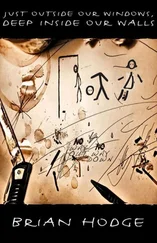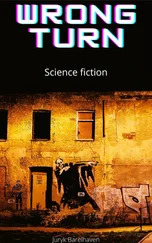‘So, then, how long did it take?’
‘Just three months,’ John said, with a grim shake of the head. ‘Just three months.’
6 Pulling the Serpent's Tail
‘KANU handed us a skunk and we took it home as a pet.’
JOHN GITHONGO 17
In April 2004, Kenyan MP Maoka Maore received a mysterious phone call telling him that if he visited a fellow MP from the tea-producing area of Limuru, he might find some interesting paperwork there.
Maore would subsequently discover that at least five other MPs were already in possession of the same documents, which someone – almost certainly a disgruntled corporate executive – was energetically leaking. Fearful of the implications, none had acted. But Maore, a cheerful scallywag with a taste for the limelight, was made of more daring stuff. Proud of the role he had played in a 1994 exposé of kickbacks paid during the construction of an airport in Moi's home town, he boasted that his name struck fear in government circles. Expose one scandal, he had discovered, and all sorts of people will approach you with incendiary information about others.
The tip-off whetted his appetite. Rumours had been swirling around the Kibaki government for months, involving the procurement of AK47s, handcuffs and police cars. An administration which had vowed to crack down on graft had itself, it was said, begun ‘eating’. Once he got his hands on the papers, he immediately tabled them in parliament, not entirely certain himself what they revealed.
The first document was a copy of a 2002 tender opened up by the previous government to supply Kenya with a computerised passport printing and lamination system. Nothing strange there – in the wake of Al Qaeda's 1998 bombing of the US embassy in Nairobi, Washington had been pressing Kenya, seen as a soft target for Islamic extremists filtering in from Somalia, to upgrade its passport system and better monitor its borders. The highest bid for that tender had been made by De La Rue, a British company, while the lowest came from Face Technologies, an American firm. What was strange, if the second document Maore tabled was to be believed, was that the tender had gone to neither. A payment voucher showed a Central Bank down-payment to a British rival called Anglo Leasing and Finance Company Limited.
This contract, which had never been put out to competitive tender, was a bloated, murky thing. For one thing, it was worth $34 million, nearly three and a half times as much as the lowest bid made back in 2002, which the government would ordinarily be expected to accept. What was more, the company awarded the contract, Maore reminded colleagues in the House, hardly boasted a savoury reputation. Six years earlier, under the former KANU government, Anglo Leasing had been blacklisted for supplying Kenya's police force with overpriced Mahindra jeeps – ‘a cross-breed between a tortoise and a snail’, in the words of a local newspaper – which broke down so regularly the police became a laughing stock. It looked as if officials at the ministry of home affairs had approved a contract inflated to the tune of at least $20 million. The whole deal gave off a sour, suspicious smell.
As far as the public was concerned, Maore's parliamentary question marked the start of the Anglo Leasing affair, the Kenyan equivalent of the break-in at the Democratic National Committee headquarters in Washington's Watergate complex. Today Maore marvels at what followed from his moment of chutzpah. ‘It was like a dream in which you pull the tail of a snake, you keep pulling, and you find that it just goes on and on forever.’ For John Githongo, however, Maore's action brought into the open an issue he had been probing for six long, anxious weeks, but naïvely believed he had brought under control. ‘I thought I had it contained. We'd been trying to quietly fix the problem behind the scenes. Then, suddenly, the cat was out of the bag.’ He would later come to feel a certain gratitude to Maore for exposing a matter which would prove too big for a mere permanent secretary. But at the time, convinced this was a minor affair that could be dealt with discreetly, the MP's intervention was just another problem to add to his growing number of headaches.
John, too, had been hearing rumours of new graft, of dodgy procurement contracts and lavish spending by members of the NARC administration, who had been buying up large villas in Nairobi's most attractive suburbs. His colleagues, he registered with growing alarm, were changing as the temptations of high office came their way. Many had spent the 1990s in the badly-paid world of political activism, setting up NGOs, braving the GSU batons, enduring police harassment. While they had pursued the cause of multi-party democracy, they had watched less idealistic friends, focused on businesses and careers, overtake them, moving from scruffy areas like South C to the pristine gated communities of Runda and Muthaiga. Now came the chance to narrow that gap after the years of self-denial. ‘I had friends who bought three separate properties at once. They were handing their wives $100,000 in spending money,’ remembers John.
At TI-Kenya, Mwalimu Mati also noticed the flowering arrogance of an administration that had started out eager to collaborate with former colleagues in the human rights world. With the launch of various inquiries into graft out of the way, NARC saw itself as beyond consultation. ‘At the end of the various commissions and task forces, civil society stopped being involved. The reports were being given to the minister and president and dying a death. In the first six months to one year, people started making excuses. And then it was: “Butt out, we're the government.”’ The same men competed with one another to see who could secure the biggest office, the most ostentatious car. The Kiswahili term for the moneyed elite is ‘ wabenzi ’ – a reference to the Mercedes Benz beloved of VIPs the world over – and NARC officials wasted no time in confirming its literal accuracy. In their first twenty months in office, government officials spent at least $12 million (878 million shillings) on luxury cars, a survey by the Kenya National Commission on Human Rights (KNCHR) and Transparency International revealed. The sums spent on E-class Mercedes Benzes, top-of-the-range Land Cruisers, Mitsubishi Pajeros and Range Rovers could have provided 147,000 HIV-positive Kenyans with anti-retroviral treatment for a year. ‘There was something of the Scarlett O'Haras to the Kibaki government at that time,’ chuckles a Kenyan Asian businessman friend. ‘They were gathering their flouncy petticoats around them and declaring: “As God is our witness, we'll never go hungry again!”’
The realisation of the virtual impunity enjoyed by those with connections to State House was hitting home. It had the giddy impact of a sudden rush of blood to the head, the first sniff of cocaine to the novice drug-taker. No longer ordinary mortals, they had become supermen, invincible, omnipotent. ‘It's completely intoxicating, mesmerising. I could see it in their eyes,’ remembers John. ‘It's a point you reach. You simply do it because you can.’
Kenyan wags, the anti-corruption chief knew, had begun joking that the acronym NARC stood not for ‘National Rainbow Coalition’, but for ‘Nothing Actually Really Changes’. Political commentators were reporting that the president's coterie had capitalised on his stroke and consequent inattention to get up to all sorts of mischief. Alarmed by a tangible sense of drift in State House, John confided to his diary that it might be time to consider resignation. But he stayed his hand. If he hadn't believed it was possible to reform a system from within, after all, he would never have accepted the job in the first place.
Читать дальше












